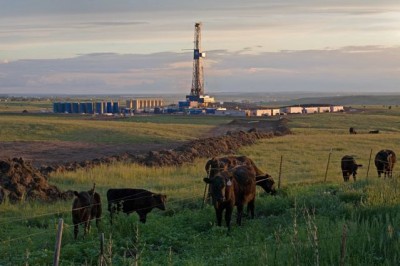Environmentalists were quick to criticize Norwegian oil company Statoil’s latest overseas venture. Its bid to take over Brigham Exploration Co, which runs oil exploration and extraction operations on the US prairie, is among the largest acquisitions in Norwegian history.

Statoil is paying nearly NOK 25 billion (around USD 4.5 billion) in cash to buy up all shares in Brigham for USD 36.50 each. Brigham’s board has unanimously recommended that shareholders accept Statoil’s offer, although analysts were expecting that Statoil’s bid would attract other offers as well.
Austin, Texas-based Brigham has what Statoil called a “strong position” in the “attractive” Bakken and Three Forks oil exploration areas of North Dakota and Montana. The oil is believed to lie in pockets of rock and earth as deep as 3,500 meters underground, and is extracted through controversial methods that require enormous quantities of water and chemicals shot under high pressure into the ground, to get the shale or slate rock to crack and yield the oil. The process risks polluting water supplies, affects large land areas and also will require installation of miles of pipelines to move the oil found.
“There are always risks, but we feel that we are well-informed about the company and the formations,” Statoil’s chief executive, Helge Lund, told newspaper Dagens Næringsliv (DN). “We must manage to handle all types of challenges around this type of project, also the environmental aspects.”
Both Statoil and Brigham noted in their announcement of the deal on Monday that the “unconventional” oil exploration and extraction produces oil of “light crude quality” and that production from Brigham’s Bakken project has low C02 emissions. The assets Statoil will take over, if its bid for Brigham succeeds, may produce as many as 500 million barrels of oil.
‘Dirty energy’
Environmentalists and some politicians were skeptical. “It’s not surprising that Statoil is buying even more dirty energy,” said Snorre Valen, energy spokesman for the Socialist Left party (SV), which also opposes Statoil’s highly controversial oil sands project in Canada, its attempts to drill for oil around the scenic Lofoten archipelago in northern Norway and other ventures. The Brigham deal marks the third time Statoil is buying into unconventional oil and gas projects in the US.
“Again we see that Statoil is buying into controversial energy projects in rich OECD countries,” Fredric Hauge, head of the environmental group Bellona, told DN. “It’s not good for the environment nor for economic development in poor countries.”
Hauge conceded that Brigham’s projects are less damaging than oil/tar sands. “If Statoil had invested in this instead of oil sands, we’d be satisfied,” Hauge told DN. “But this comes in addition to everything else.”
Brigham currently is producing around 21,000 barrels of oil equivalent (boe) a day from its prairie projects, and expects to boost that to 60,000 to 100,000 boe over the next five years. The company has around 100 employees in Austin and North Dakota and Statoil has said it intends to retain them and the Austin office. Statoil executives may also feel comfortable and welcome in North Dakota, which has a large Norwegian-American population after many poor Norwegian immigrants settled there in the late 1800s and early 1900s.
Views and News from Norway/Nina Berglund

